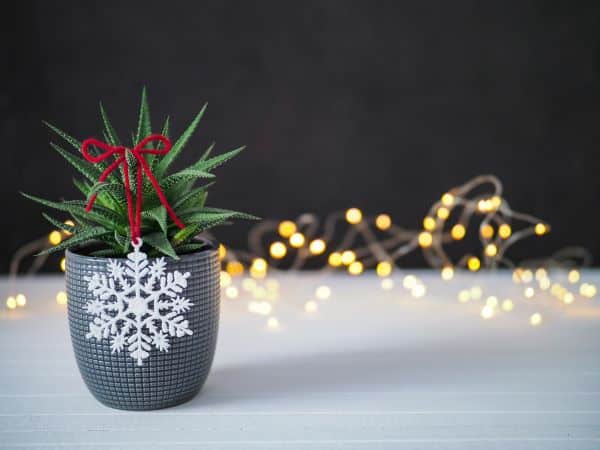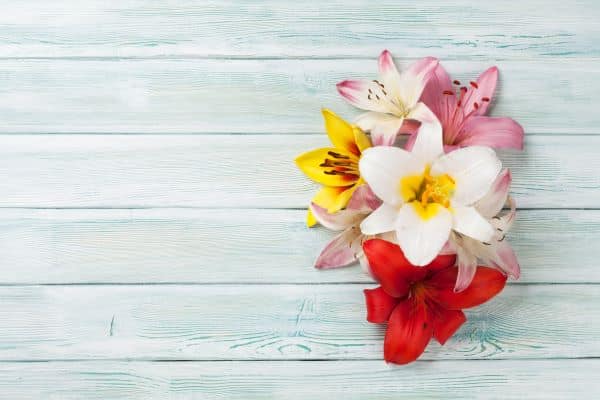During the festive season, homes are adorned with various plants to enhance the holiday spirit. However, it’s crucial to remember that some of these decorative greens can pose serious risks to pets. Many holiday plants, while beautiful and traditional, contain toxins that can harm animals if ingested. Pet owners need to be aware of these potential dangers to ensure their furry friends stay safe and healthy throughout the holiday celebrations. Identifying these plants and understanding their effects on pets is an essential step in preventing accidental poisonings and ensuring a happy, pet-friendly holiday season.
Contents
Holly
Holly is a quintessential holiday plant, often used in wreaths and as decorative greenery. Its bright red berries and glossy, spiky leaves embody the festive spirit. However, both the leaves and berries contain substances like saponins and methylxanthines, which are harmful to pets. If ingested, they can cause pets to suffer from gastrointestinal upset, including vomiting and diarrhea, and in severe cases, can lead to more serious health complications.
Pets exhibiting curiosity towards holly should be closely monitored. Symptoms of holly ingestion can range from mild to severe. These include drooling, loss of appetite, and decreased energy levels. In cases where a pet ingests a significant amount of holly, it’s vital to seek immediate veterinary assistance. Pet owners should consider using artificial holly as a safer alternative or ensure that natural holly is placed well out of reach of pets.
Poinsettias
Poinsettias are synonymous with the holiday season, adorning homes and offices with their vibrant red and green foliage. While they are less toxic than some other holiday plants, they still pose a risk to pets. The white sap in poinsettias contains chemicals known as diterpenoid euphorbol esters, which can cause irritation to the mouth and stomach of pets, leading to symptoms such as vomiting or nausea.
It’s important for pet owners to be aware that the risk posed by poinsettias, although relatively low, should not be ignored. If a pet ingests poinsettia leaves, they might experience discomfort or a mild reaction. Keeping these plants out of reach or opting for pet-friendly holiday decorations can prevent potential issues. In case of any signs of distress or illness after exposure to poinsettias, consultation with a veterinarian is recommended.
Mistletoe
Mistletoe, often hung in doorways during the holidays, carries a hidden danger for pets. This plant, particularly its berries, is highly toxic when ingested. Mistletoe contains several toxic compounds, including viscotoxins, which can cause severe symptoms such as gastrointestinal distress, cardiovascular problems, and even seizures in pets.
The risk of mistletoe to pets, especially cats and dogs, should be taken seriously. If there is suspicion that a pet has ingested mistletoe, immediate veterinary attention is crucial. Symptoms can escalate quickly and may become life-threatening. For a safer holiday environment, consider using synthetic mistletoe or ensure that any real mistletoe is securely fastened and out of pets’ reach.
Christmas Cactus
The Christmas Cactus, with its vibrant flowers and unique appearance, is a popular choice for holiday decoration. Unlike many other holiday plants, it is generally considered safe for pets. However, it can still cause mild discomfort if ingested. The fibrous plant material can lead to irritation of the stomach and intestines, resulting in symptoms like vomiting or diarrhea in pets.
While the Christmas Cactus poses a relatively low risk, pet owners should still exercise caution. Keeping the plant out of reach ensures that pets are not tempted to chew on it. In case a pet does ingest parts of the plant, monitoring for any signs of gastrointestinal upset is advisable. Typically, symptoms are mild and resolve on their own, but consulting a veterinarian is recommended for persistent or severe symptoms.
Amaryllis
Amaryllis, known for its large, trumpet-shaped flowers, is a popular holiday plant that can be particularly dangerous to pets. All parts of the plant, especially the bulbs, contain toxic alkaloids that can cause serious health issues in pets if ingested. Symptoms of amaryllis poisoning include vomiting, depression, diarrhea, abdominal pain, hypersalivation, anorexia, and tremors.
The potential severity of amaryllis poisoning necessitates proactive measures to keep these plants away from pets. Displaying them in areas inaccessible to pets or choosing pet-safe alternatives is advisable. In instances of suspected ingestion, immediate veterinary care is essential. Timely treatment can prevent more severe health complications and ensure the well-being of pets.
Lilies
Lilies are another plant commonly used in holiday arrangements, but they are extremely toxic to cats. Even small amounts of any part of the plant can cause severe kidney damage in cats. Symptoms of lily poisoning may include vomiting, lethargy, lack of appetite, and kidney failure, which can be fatal if not treated promptly.
For households with cats, it is strongly recommended to avoid lilies altogether. Awareness of the extreme danger lilies pose to cats is critical. Should a cat ingest any part of a lily, immediate veterinary intervention is necessary. Early treatment is key to managing lily poisoning and can significantly improve the chances of recovery.
Yew Tree
The Yew tree, often used in wreaths and other holiday decorations, contains highly toxic compounds. Ingestion of yew plant material, particularly the needles and seeds, can lead to severe, potentially life-threatening symptoms in pets. These include difficulty breathing, muscle tremors, gastrointestinal upset, and heart failure.
Due to the high toxicity of Yew trees, it is crucial to ensure that pets do not have access to any part of this plant. Alternative, non-toxic plants should be considered for holiday decorations. In cases where a pet has ingested yew, immediate veterinary care is critical. The rapid onset of severe symptoms requires prompt medical attention to prevent fatal outcomes.
The Bottom Line
During the holidays, it’s important to create a safe environment for pets by being mindful of the plants used for decoration. Many traditional holiday plants can pose serious health risks to pets if ingested. Ensuring these plants are out of reach or selecting pet-safe alternatives can prevent accidental poisonings. In the event a pet ingests a potentially harmful plant, seeking veterinary care immediately is crucial. By taking these precautions, the festive season can be joyous and safe for all family members, including the furry ones.






